Katrina Hoover Lee on From the White House to the Amish (Book Giveaway)
From the White House to the Amish is the new book from Katrina Hoover Lee telling the story of Thomas E. Kirkman, who lived a remarkable life which took him from the highest corridors of power to becoming a convert to the Amish.
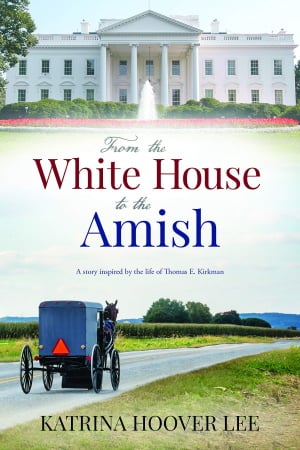 The book is a real page-turner. Katrina wrote Kirkman’s story as a biographical fiction, which she explains in the Q-and-A below.
The book is a real page-turner. Katrina wrote Kirkman’s story as a biographical fiction, which she explains in the Q-and-A below.
Enter to Win a Copy of From the White House to the Amish
To enter for a chance to win a copy, simply leave a comment on this post.
I’ll draw a winner and post it here on Friday (update: it turns out we need to push it to next week, so look for the winner here Monday).
Katrina Hoover Lee on From the White House to the Amish
Amish America: Who was Thomas E. Kirkman?
Katrina Hoover Lee: Born in southern Indiana during the Great Depression, Tom grew up during World War II and the 1950’s. Though he was raised by Christian parents, he turned against God after the loss of the most important person in his life. Although gifted as an artist, spy, and inventor, Tom’s life spiraled into depression and bitterness toward God. Through an unexpected voice and an unpretentious Amish man, Tom Kirkman was forever changed.
Amish America: What is remarkable or unique about this story?
Katrina Hoover Lee: As a young man, Tom worked in the White House under both the Eisenhower and Kennedy administrations and spent time in the CIA. Later, he joined the Amish church.
Can you tell us a little bit about yourself and your background?
I consider myself a lifetime writer although my first book came out in 2010. I’ve written a total of eight books through Anabaptist publishing houses. Raised in central Wisconsin, I now live in Elkhart, Indiana, with my husband Marnell. We are expecting our first child, a girl, in May.
What’s one thing you learned in your research that surprised or moved you?
Although Tom passed away before I was able to speak to him, his son Brad was full of helpful stories he remembered from his father. Some of Tom’s stories were so out of the ordinary, I felt like I should doubt them until I found good evidence, even though this book is a biographical fiction. Several discoveries in my research reassured me that Tom’s word was trustworthy. These revelations thrilled me!
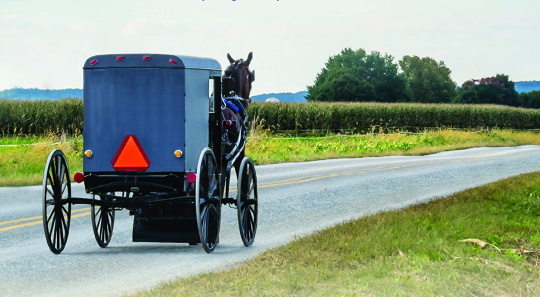
When writing a story inspired by real people and historical events – how does that work? How much do you rely on the real-life facts and what parts do you need to “fill in” or create yourself?
I always have to decide first whether I’m writing a biography/memoir, or whether I’m writing a biographical fiction. Since Tom was no longer living when I took on the project, it seemed fitting to make the book a fiction book based on truth, or a biographical fiction. I did my best to stay true to what I did know about Tom Kirkman. But in many cases, the details went with Tom to his grave. In order to offer the reader a readable narrative, I added details that seemed to fit Tom’s character and the the information I did have.
What other books have you written, and what was different about this one?
Of my other eight books, Blue Christmas and Captain Garrison are the most loved by readers. With the exception of my very first book, all the books can be seen at my website. From the White House to the Amish is the first book I’ve written set in the mid-1900’s. It was fascinating to research President Eisenhower in particular!
What will readers take away or learn from From the White House to the Amish?
I hope the book inspires people to think about what is most important in life. I also think people who remember the Eisenhower and Kennedy years will enjoy the book even more.
What do the Amish think of this book?
I was concerned about this myself. Even though I’m a conservative Mennonite myself, I’m not a part of the Amish culture and I was hoping the book would not be offensive, particularly since Tom did not remain with the Amish church until his death. However, I was pleased to hear that the book was recommended as a great book to read on the Midwest Amish Chat Line. This is a telephone conference that many Amish listen to for news. Hearing this made me much more easy in spirit! I have also heard positive comments from a number of other Amish people.
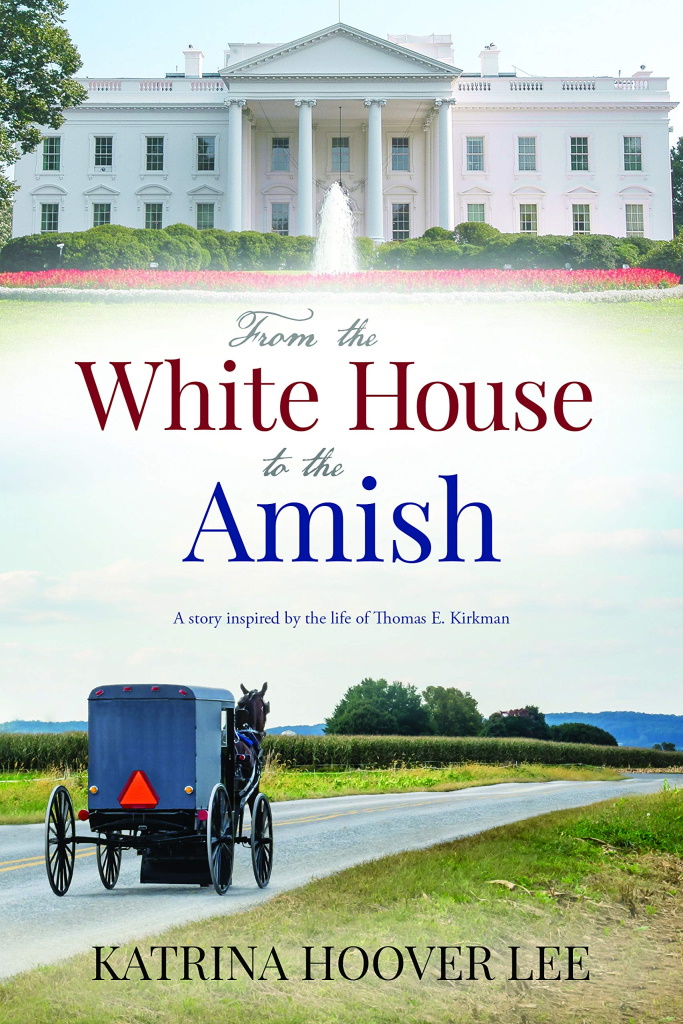
Where can readers find From the White House to the Amish?
I encourage readers to buy directly from my website if they are able, since that supports my own author journey best. I send autographed paperbacks directly from my house in Elkhart, IN. The paperback, ebook, and audiobook can all be purchased directly from me here.
However, the ebooks are available on Apple, Nook, Amazon, and more; you can see a list of the retailers here. The paperback is available from Amazon, but it will be more expensive than if you buy it directly from me. We recently released the audio version with narration by Conrad Bear. This can be accessed from our website as a digital download or a CD set. Also available from Apple, Audible, Nook, Kobo/Walmart, and various others.
Are you giving a coupon to readers of Amish America?
Why, yes! If you purchase from my website, don’t forget to use coupon code Amish15 for 15% off any form of From the White House to the Amish (paperback, ebook, audiobook).


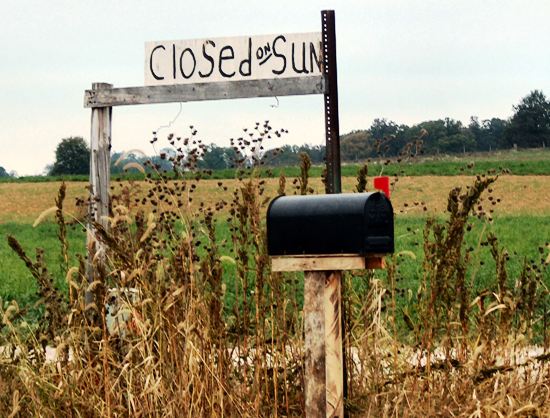

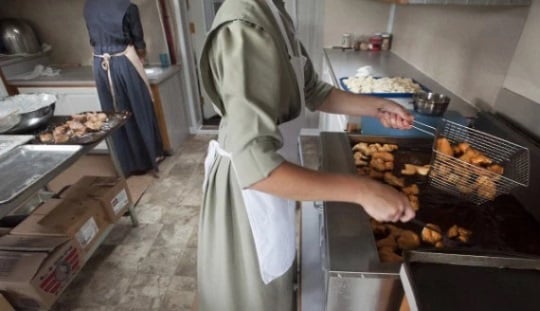
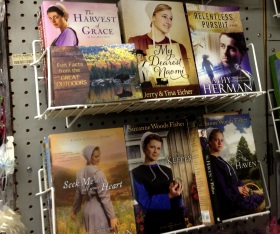
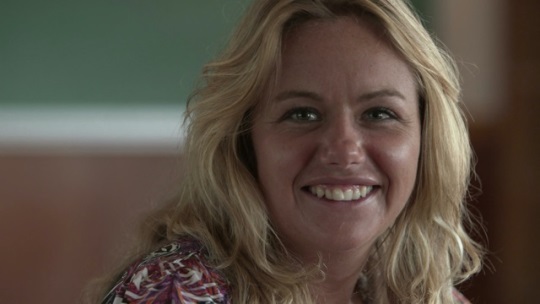

Amish Book
One way or the other, I’m going to read this book.
I love the setting in Washington…I’m certainly old enough to remember those days.
I’ve been fascinated by the Amish since I was a kid (my sister too), & have visited many settlements. I recently discovered that my family came over in 1707 from Germany with Joseph Wenger. There were many ministers in my Mennonite family. So it has come to be even more fascinating in my continuing education of Anabaptists. And a long time ago I wished to be Amish, but never took the leap. So this book will cover a lot of ground for the curiosities that swim in my head on a daily basis!!!
Thank you & congratulations on the book!!!
Thanks
I would love to read this book – it sounds absolutely amazing, and would be good to read a book based so heavily on facts
Stay safe
Blessings
Maxine
Looking forward to reading
This sounds like a fascinating story! Looking forward to reading it. I find that books about the amish always inspire me to live a better life and to be the best me I can be. Thank you!
God bless! And Stay Healthy!
Theresa
Whitehouse to Amish
I would love to win this book for myself and my teens to read.
I would love to win a copy of this book! My family lives among the Amish in Path Valley Pennsylvania and we enjoy that. I would use this book as a read a loud with my girls (ages 14, 12, 12) for our school year. We are going to begin learning PA dutch for language and this would pair well with that. This book sounds like it would also be great for more knowledge on history, civics, and culture.
Would love a copy
Thank you for the opportunity of a chance to win one of your books. We live within a few miles of Oxford Pa and absolutely love our Amish neighbors.
Book giveaway by Katrina Hoover
Would love to win this giveaway. I have enjoyed numerous stories about the Amish..
Thank you!
This book sounds really interesting. I’d like to read it and review it on my Amish Book Reviews YouTube channel (see link above).
Thank you for writing this Katrina!
Amish Book Giveaway
I look forward to reading this book which sounds really interesting and is based on true events, which I like to read about too. Thanks for the chance of winning our own copy of your new book.
Win Book
I would love to read this book. I usually read Amish books all the time!! I can not get enough of them!!!
Life Changes
It’s funny when life throws unexpected happenings into your path…ones that seem to come from out of the blue! I have not had the pleasure of reading the book yet, but most certainly know I would enjoy it, since my own life has had a few directional changes. Some have been good, others less so and I always find other peoples’ challenges to be fascinating – especially when events prove one’s mettle in accepting change and reaching for it instead of backing away. After all, God has a plan for all of us, even though we are not privy to what that plan may be, Letting someone else steer our life onto a different path can be extremely defining and strengthening when we need it most!
Giveaway
I can’t wait to read this book. It looks so interesting.
I’ve enjoyed a number of Katrina’s books already and would love to receive a copy of From the White House to the Amish!
I want to read this book
Would love to read this!
Sounds like a really good read. Would love to win it. Always love to read Amish related books and love to visit Amish areas whenever possible.
From the White House to the Amish (Book Giveaway)
I look forward to reading From the White House to the Amish. My Amish ancestors moved into southwestern Elkhart County–and Marshall and Kosciusko counties–in the 1840s, and many members of my extended family are still part of the Amish church. And while I have read little Amish fiction, I enjoy historical fiction, so this book sounds right up my alley. (from Goshen, Indiana)
The simple way
This will give us a special look on how thinks can go, if you follow your hart. Looking forward to read his book.
From the White House to the Amish
I would love to read this book.
From the White House to the Amish
This sounds like it is a very interesting story. I love to read–do it all the time. Living not too far from Lancaster PA I’ve always been impressed by the Amish.
From the White House to the Amish
I would love to read this book and since I
was born on 1941, I remember the Eisenhower
and Kennedy years very well.
This sounds fascinating, I’m looking forward to reading it!
Love learning about Amish
This title appeals to me. I am a high respecter of Amish. I am interested in how this transition occurred. Thank you for the opportunity to get this book.
From the White House to the Amish
Would enjoy reading this
Marcus Yoder
A child of the 59's and 60's
I grew up in the 50’s and 60’s and was able to see President Eisenhower in person when he was riding in a motorcade in Waco, TX on his way to James Connolly air base. I believe the air base is gone now. Our elementary school let the teachers walk their classes a couple of block to see his ride my. He stood and smiled at all of us when he went by. I was fortunate to visit the White house in 1961 when my family was in Washington, D. C. visiting friends.
A fascinating read
This sounds like a fascinating read, please enter me in the giveaway.
Terry
Anxious to read
I love this style of writing and can’t wait to read this book. Thanks.
Sounds like a very interesting story! Love to read story’s about Amish converts!
Thank you!
I love to read about the Amish and I would love to read this book!
Love learning more about The Amish
I would love to win this book.
This sounds like a great read.
Thanks for the opportunity to win.
Would love to read your book!! Hope I win a copy. as funds are tight…. Thank you! Ann King
Katrina Hoover
I would love the chance to win!
I enjoy reading historical fiction and look forward to reading “From the White House to the Amish”.
From the White House to the Amish
Sounds interesting.
I keep hearing about this book and would love to win a copy to read and share; thanks for the chance!
Glenda
Katrina’s book sounds delightful and I would love to have a copy!
From Quakers and Shakers to Amish
This book sounds like a must read. I have lived amongst the Quakers and Shakers at Pendle Hill in Wallingford, Pa. I have also lived amongst the Amish in Honeybrook,Pa. I have also lived amongst the Hindus, in ashrams and communes in Vt. My life has had so many turns, good and bad. I have survived 5 near death experiences that have brought me to today,a dairy farmer living a simple life. I look forward to connecting with this man’s life!! Thankyou
I love reading books about the Amish. This one sounds very interesting!
From the White House to the Amish (Book Giveaway)
Sounds fascinating! Cannot wait to read this book!
This sounds like a very good read! Since I enjoy historical fiction and learning about the Amish, From the White House to the Amish sounds very intriguing and right up my alley!
Love the amish
I grew up in Pa, and was quite familiar with the Amish and Dutch. However, being young it was just a thing, now that I’m older, I wish I would have paid closer attention. But books are my thing, and to date I have read over 60 books about, centered around, and history of the Amish. Thanks
Amish/White House book giveaway
I love what I read so far. I hope to win, so I can continue reading. I live in an area where we have Mennonite and some old Amish. I can’t wait to find out who wins.
I very much wish to find this book and read it. Have checked with my local library in Texas and one in Sarasota Florida, neither carry it. Surprising, as Sarasota has a good size area of Amish and Mennonite individuals.
From the White House to the Amish
Having been born in Washington, DC, and currently living in Lancaster, PA, which has a large Amish commumity, I am really looking forward to reading this book.